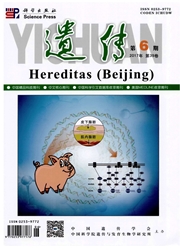

 中文摘要:
中文摘要:
在哺乳动物精子发生过程中,原生殖细胞发育成为精原细胞,再发育为精母细胞,精母细胞经过两次减数分裂成为圆形精细胞,这些圆形精细胞经过细胞变态形成精子。精子发生过程经历了复杂的细胞分化阶段,这一阶段受许多因素的调控作用,其中生精细胞内的基因调节起着决定作用。精子发生中的重要基因与一系列精子发生过程中阶段性的细胞事件密切相关,例如减数分裂重组、联会丝复合物的形成、姊妹染色体的结合、减数分裂后精子的变态以及减数分裂周期中的关键点和必需因子等。生精细胞许多特异基因的阶段特异性表达,参与了精子发生这一特殊的细胞分化过程。近年来随着基因克隆、表达和功能研究技术的发展和应用,发现了许多与精子发生相关的基因,而且有的被证明在精子发生过程中具有重要作用。文章较全面综述了这一研究领域的一些进展,着重讨论了与精子发生相关的周期蛋白基因、原癌基因、无精子因子基因、细胞骨架基因、热休克基因、核蛋白转型基因、中心体蛋白基因和细胞凋亡相关基因等。
 英文摘要:
英文摘要:
During mammalian spermatogenesis, primordial germ cells develop into spermatogonia, giving rise to spermatocytes that undergo two meiotic divisions to become round spermatids. These cells differentiate into spermatozoa during spermiogenesis. Spermatogenesis is a complex process of cell differentiation controlled by many factors, among which gene regulation in the spermatogenic cells plays a pivotal role. Genes important for male gametogenesis involved in highly conserved landmark events such as meiotic recombination, formation of the synaptonemal complex, sister chromatid cohesion, spermiogenesis during postmeiotic stages, and checkpoints and factors required for the meiotic cell cycle .Spermatogenesis is characterized by phase-specific expression of many genes exclusively expressed in the spermatogenic cells. With the development and application of technologies like gene cloning, gene expression and functional characterization, many spermatogenesis-related genes have been found in the past few years, and some of them have been proved to play an important role in spermatogenesis. Here, we review the advances in this field with an emphasis on spermatogenesis-associated genes such as cyclins, proto-oncogenes, azoospermia factor genes, cytoskeleton genes, heat shock genes, nucleoprotein transition genes, centrin genes and apoptosis genes.
 同期刊论文项目
同期刊论文项目
 同项目期刊论文
同项目期刊论文
 期刊信息
期刊信息
